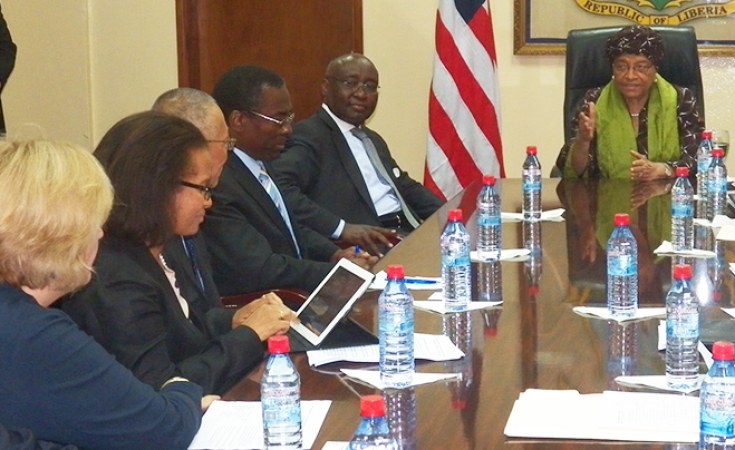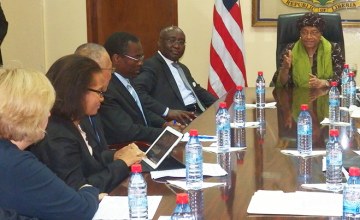The President of the African Development Bank Group (AfDB), Donald Kaberuka, and the World Health Organization (WHO) Regional Director for Africa, Dr. Luis Sambo, on Tuesday, August 26 signed a Memorandum of Understanding (MoU) cementing a US $60 million Bank grant to help strengthen West Africa's public health systems in response to the Ebola crisis.
The funds, which will be implemented by the WHO, will be used to help recruit and train health workers, purchase equipment and medicine, and ensure that the necessary logistics are in place at the local level to provide emergency health services to Ebola patients.
As of Monday, 2,615 cases of Ebola have been recorded since March, resulting in 1,427 deaths in Guinea, Liberia, Sierra Leone and Nigeria.
"The Ebola crisis has shown the weakness of our health systems. When we have vanquished Ebola, there will be other challenges, and we must be better prepared. This concerns us all: Ebola has no passport; it respects no borders," said President Kaberuka. "It is a very dynamic epidemic. This is why - on top of this work with the WHO - the AfDB will invest an additional $150 million to assist its regional member governments through budget support operations in order to pay health workers, equip health centres, and create jobs."
"The ongoing Ebola Virus Disease outbreak is a bitter reminder to all African Governments and partners on the need to strengthen health infrastructure capacities in order to cope with disasters and epidemics. This MoU will cover the immediate response needs as well as help to strengthen the health systems capacity", said Dr. Luis Sambo, WHO Regional Director for Africa.
"We are thankful that there are no cases in Côte d'Ivoire. However, we need to be aware that the country is at high risk. We have taken - and will take - every precaution," said the Minister of Health and the Fight against HIV/AIDS for Côte d'Ivoire, Raymonde Goudou Coffie, who took part in the event.
"In the long term we want to tackle the root causes of the epidemic and strengthen health systems in Africa, because it threatens the economic situation of countries," said Kaberuka. "According to recent estimates, these countries may lose 1.5% of GDP due to this epidemic. Even if the WHO has not imposed any travel restrictions, private airlines have banned international travel to and from the affected countries, impacting tourism and trade."
Since April, the Bank has already disbursed $3 million to support regional Ebola response efforts. It has also made four emergency assistance grants of $ 1 million each to the Governments of Guinea, Liberia, Sierra Leone and Nigeria. As the largest donor so far, its total support package is worth some $210 million.



